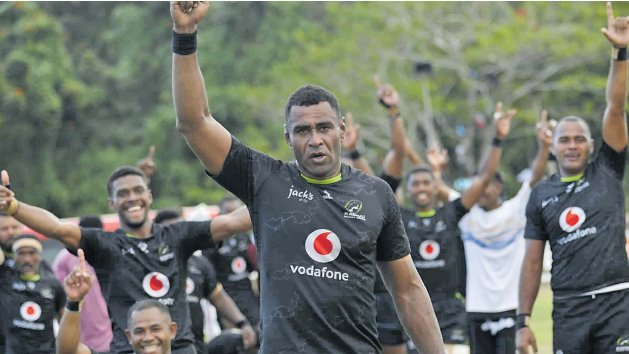THE Vueti-Kadavu Youth Festival has sparked a wave of transformation in youth empowerment and sports revival on Kadavu, says the Ministry of Youth and Sports.
Minister Jese Saukuru highlighted the festival’s outcomes in Parliament last week, describing it as a “movement that awakened a sleeping giant” in both youth and sports development.
The Youth Festival was held in December 2023 and officiated by Prime Minister Sitiveni Rabuka, who, according to previous publications, reaffirmed the Government’s commitment to “supporting youth initiatives and sustainable livelihoods across rural and maritime communities”.
It was held at Namalata District School and marked the first event of its kind on the island.
It was part of the ministry’s broader vision to empower young people through engagement, education, skills development and entrepreneurship, in line with Fiji’s National Development Plan and the Sustainable Development Goals (SDGs).
Despite being Fiji’s third-largest island, Kadavu has long faced challenges such as limited training opportunities, few employment pathways, and the rise of illicit substance cultivation.
Mr Saukuru said the ministry saw these challenges as opportunities for transformation through sports, agriculture and entrepreneurship.
Festival objectives and participation
The three-day festival brought together more than 1000 youths aged 15 to 35 from 52 registered youth clubs, along with community leaders, entrepreneurs and development partners.
“The festival’s objectives included providing a platform for youth to showcase talents in sports and culture, reviving the Kadavu Provincial Rugby Union and Youth Council, promoting agribusiness, building partnerships with investors and agencies, encouraging dialogue on social issues and mental health, and celebrating Kadavu’s traditional arts and identity,” Mr Saukuru said.
“The event featured sports competitions, agribusiness training, cultural performances and awareness sessions, attracting senior government officials, community elders and development partners.”
Major outcomes
One of the festival’s key achievements was the reactivation of the Kadavu Rugby Union, which had been inactive for years.
The launch, held during the festival, saw the election of Lynda Tabuya, Minister for Information, as the union’s first female president.
Less then two years later, Kadavu Rugby achieved what Mr Saukuru described as “the unthinkable”.
The Kadavu Women’s Rugby Team won the Royal Ranadi Cup exactly one year after the festival, while Kadavu’s men’s team went on to win the 2025 Vodafone Vanua Championship, securing promotion to the 2026 Skipper Cup.
“These victories are not mere sporting achievements.
“They represent a cultural and social transformation, a result of unity, discipline, and the empowerment of youth and women through sports.”
Mr Saukuru also noted a 60 per cent decline in marijuana-related cases recorded by Vunisea Police one year after the festival, crediting the festival’s agribusiness initiatives that encouraged youth to shift from illicit cultivation to legal ventures in kava and taro farming.
Reviving culture and leadership
The festival also revitalised the Kadavu Youth Council and strengthened collaboration among youth clubs, creating a platform for leadership and advocacy.
Traditional arts and cultural performances were revived, promoting a renewed sense of identity and belonging.
“Open discussions on social issues during the festival encouraged mental well-being and responsible citizenship.
“The collaboration between government ministries, the Fiji Sports Council, the Fiji National Sports Commission, the Ministry of Agriculture and private sector partners made the festival a model of inter-agency cooperation.”
National expansion and future plans
Mr Saukuru has since replicated the Vueti-Kadavu model across other provinces and maritime islands, aiming to foster unity, entrepreneurship, and national identity through youth empowerment.
Plans are also underway to develop sports grounds and alternative livelihood programs in collaboration with other government ministries to further enhance youth engagement and create economic opportunities.
Mr Saukuru commended the Kadavu Provincial Council, the Kadavu Youth Council, all participating youth clubs, and partner ministries for their contributions.
“The story of Vueti-Kadavu is a story of hope restored, dreams revived, and communities united,” he said.
“From dormancy to dominance, the Kadavu Rugby Union’s comeback is not just a sporting achievement, it is a national symbol of what empowerment looks like in action.”
The signs are visible, the revival of the Kadavu Rugby Union, the rise of women’s participation in sports, and even the reported drop in drug-related offences point to genuine progress that have also commanded the praises of the Opposition.
The Vueti-Kadavu model has shown what empowerment can look like when words are backed by action, but the challenge now is in sustaining that spirit beyond a single festival and ensuring the same opportunities reach every young Fijian, from Kadavu to Rotuma.



